Recently, Coordination Chemistry Reviews, ranked No.1 among inorganic chemistry journals, published a comprehensive review from Huanshun Yin research team of Shandong Agricultural University. This paper makes a comprehensive review of the research progress of electrochemical, photochemical and electrochemical luminescence technology in the detection of epigenetic modifiers, explains the occurrence mechanism of epigenetic modification, summarizes the detection strategy of epigenetic modifier, details the progress of these three electrochemical techniques in the detection of epigenetic modification molecules and related enzyme activity, sums up and evaluates the current research status, and looks forward to the future development and research trends in related fields.
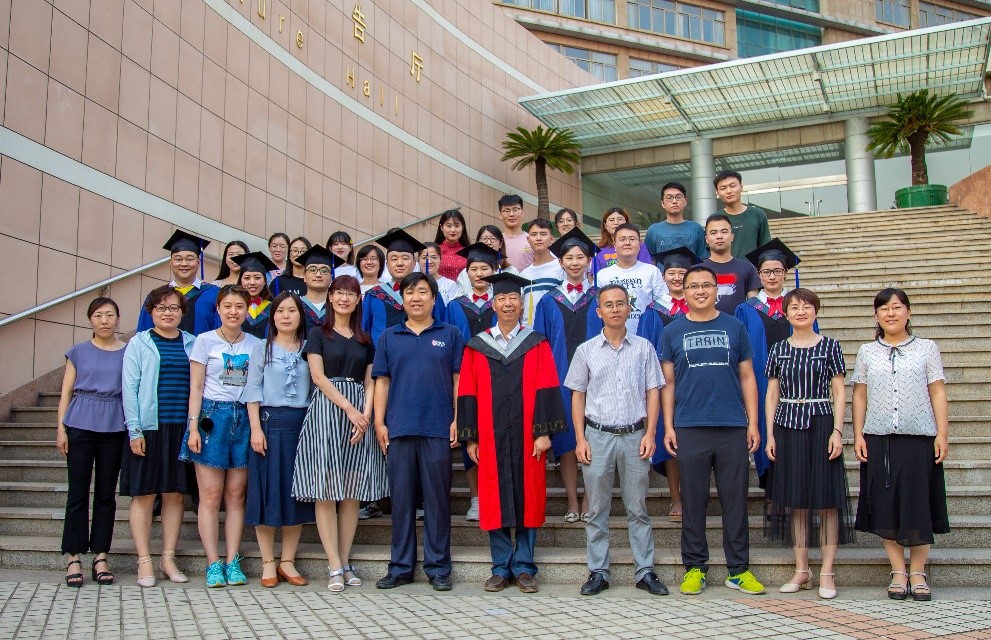
The research team where Professor Huanshun Yin belongs (Team leader: Professor Shiyun Ai)
Epigenetic modification is a hot topic in the field of chemistry, and its abnormal expression is directly related to various diseases, plant growth and development, ecological toxicological effects of pollutants, etc. Also, epigenetic modification has attracted widespread attention in biology, agriculture, horticulture, medicine, forestry and environmental science. Therefore, it is of great significance to accurately detect the epigenetic modifiers and the corresponding enzyme activity for the early diagnosis of disease, the research and development of new therapeutic drugs, the research of new mechanisms of plant growth, and the study of disease mechanism.
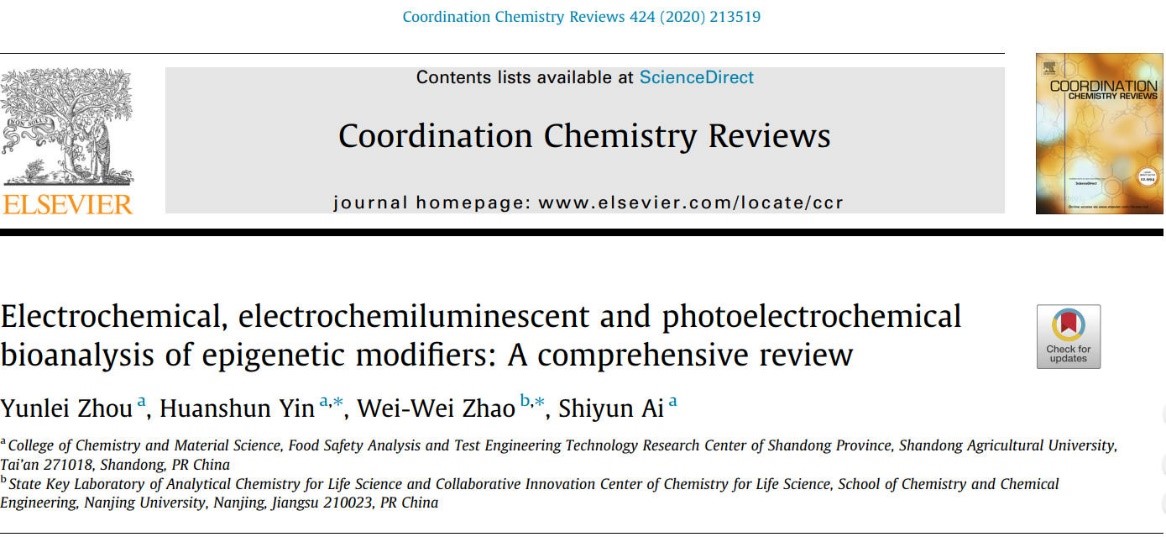
Screenshot of the paper
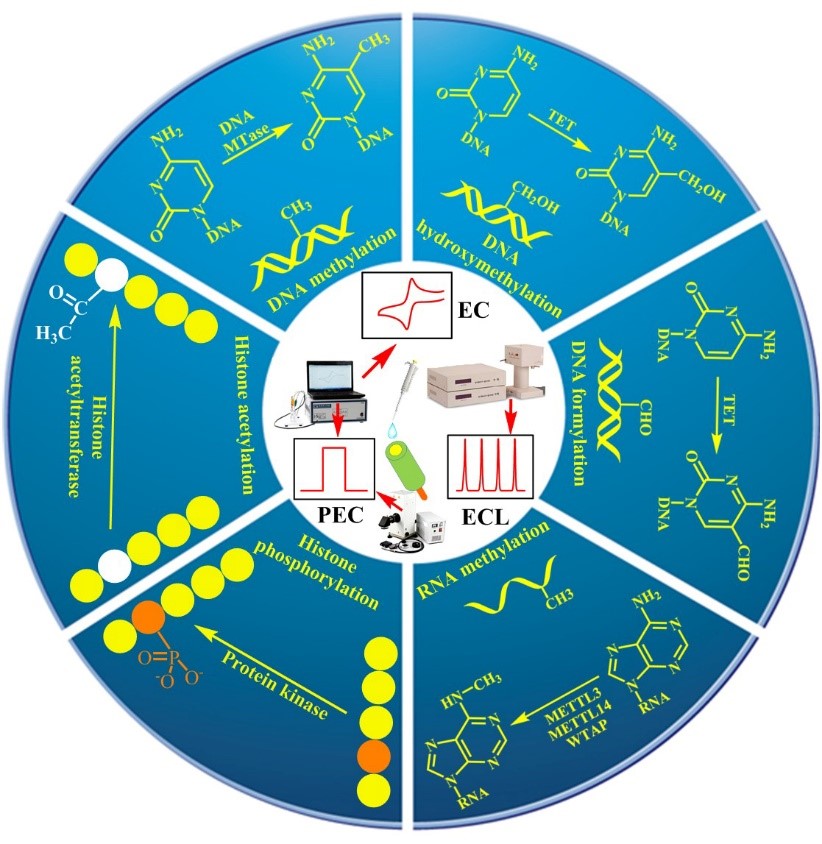
Graphical abstract of the paper
Up to now, thin-layer chromatography, liquid chromatography, mass spectrometry, sequencing, surface-enhanced raman spectroscopy, and colorimetric method have been reviewed to detect epigenetic modifiers. However, a comprehensive review of electrochemical-based techniques to detect epigenetic modification has not been reported.
In this review, the Yin’s team summarizes in detail the research progress of detection of epigenetic modification based on electrochemical technology in the past ten years, including DNA methylation, DNA hydroxymethylation, DNA formylation, RNA methylation, histone phosphorylation and histone acetylation, etc., and also reviews the relative enzyme activity determination and inhibitor evaluation of DNA methyltransferase, protein kinase, histone acetyltransferase, etc.
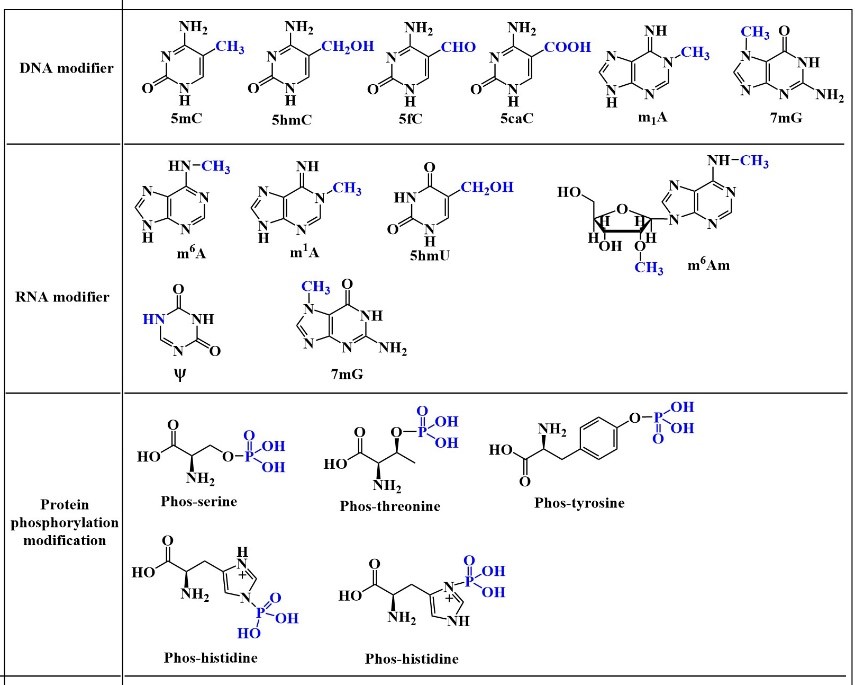
The typical epigenetic modifiers reviewed in the paper
According to Professor Huanshun Yin, the corresponding author, most of current work is mainly focused on the detection of a single epigenetic modifier, rarely on simultaneously detecting two or more molecules. So high-throughput detection technology is one of the hot spots for the future of analytical chemistry.
Professor Huanshun Yin 's team is mainly engaged in the construction of electrochemical biosensors and their applications in the detection of epigenetic modification molecules and environmental pollutants, as well as the study of light catalytic degradation of environmental pollutants. In recent years, the research team has made innovative research achievements in the detection of epigenetic modifiers, as well as the evaluation of the ecotoxic effects of environmental pollutants on crops with the epigenetic modification molecules as biomarkers. The research results have been successively published in top journals such as Analytic Chemistry, ACS Sensors, Chemical Communications, Chemical Engineering Journal, Biosensor and Bioelectronics, etc.
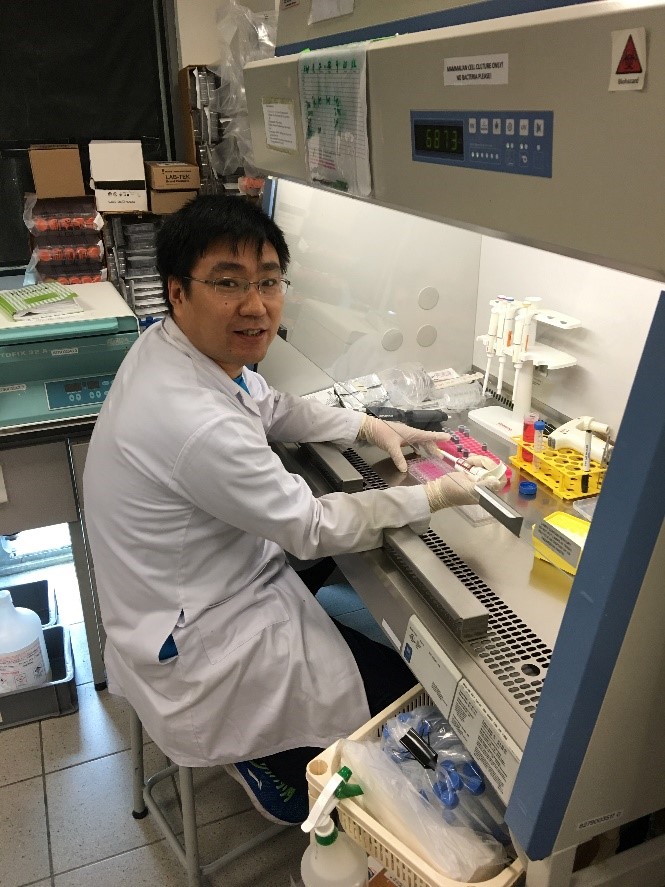
Professor Huanshun Yin

 Chinese
Chinese